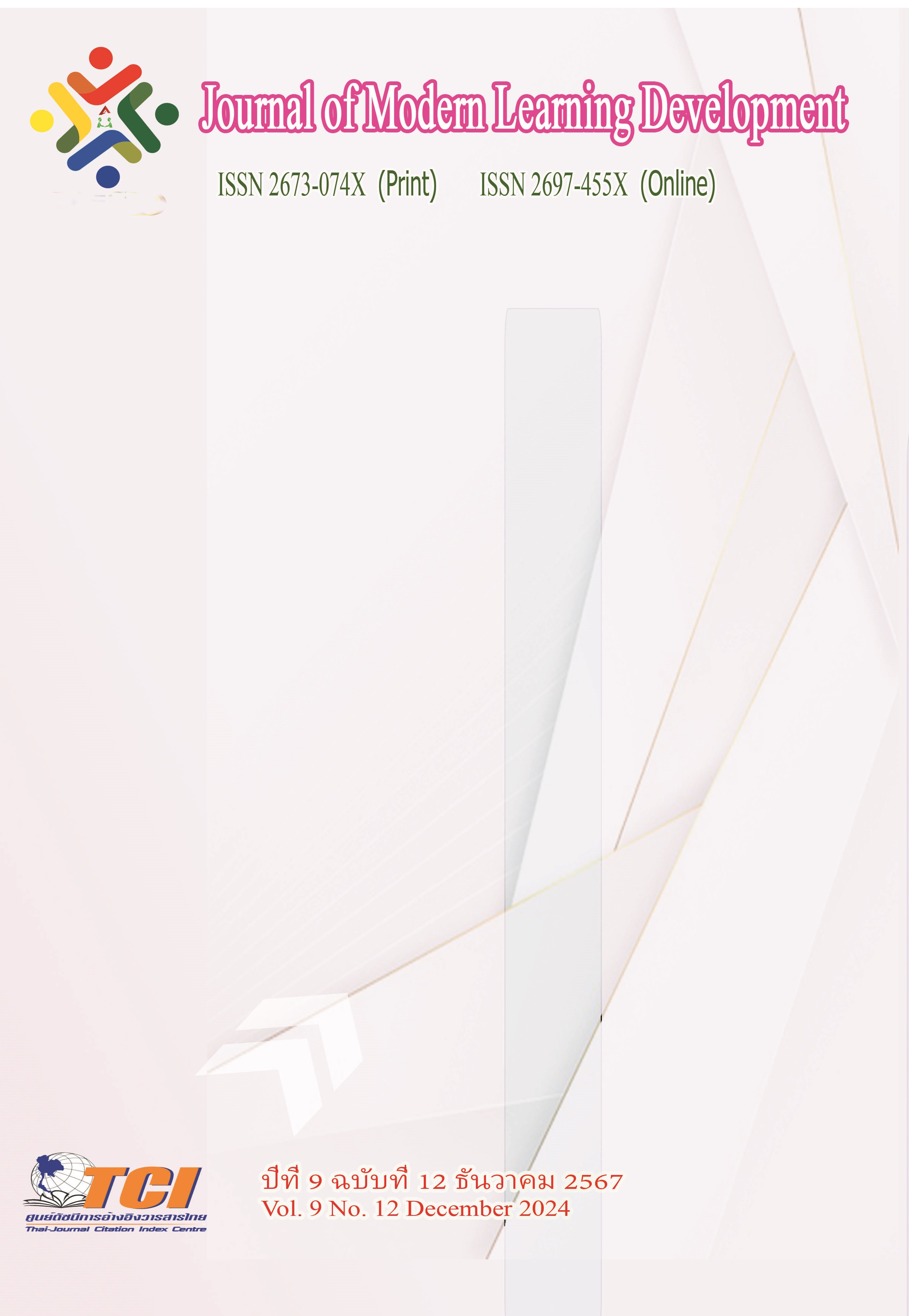Mechanism of Team Leadership on the Performance of Scientific Research Teams of Higher Educational Institutions in Anyang City Under Henan Province
Main Article Content
Abstract
This article studies the impact mechanism of scientific research team leadership on team performance in vocational colleges in Anyang City, Henan Province, including: (1) determining the dimensions of team leadership and scientific research team performance in colleges and universities in Anyang City, Henan Province; (2) exploring the impact of team leadership on team performance in Henan Province The influencing mechanism of the performance of scientific research teams in universities in Anyang City, Henan Province; (3) Propose guidance on improving the performance of scientific research teams in universities in Anyang City, Henan Province. This study adopted a mixed qualitative and quantitative research method. The research subjects were all faculty and staff of four universities, a total of 4452 people, and a total of 315 randomly selected samples were collected. Content analysis was used to establish a questionnaire, and confirmatory factor analysis was used to determine team leadership and The reliability and validity of performance dimensions are analyzed in depth through the establishment of structural equation models and mediation models to analyze the influencing mechanisms.
The research conclusions are: (1) The components of scientific research team leadership include professional commitment, problem decision-making, learning and innovation, communication motivation, mission goals, and authorized collaboration; the components of scientific research team performance include team scientific research output, team satisfaction, and team Adaptability; (2) Scientific research team leadership has a significant and strong correlation with team performance. Among them, communication incentives, mission goals and learning innovation have a significant positive correlation with scientific research results; communication incentives and mission goals have a significant positive correlation with team satisfaction. There is a significant positive correlation; professional commitment and learning innovation have a significant positive correlation with team adaptability. The suggestion is: In order to improve team performance, team leaders should give priority to motivation through communication, clarify the team's scientific research mission and goals, focus on members' research skills training, respect members' independent opinions, and support innovation. At the same time, leaders also need to pay attention to the forefront of the industry and strive for resources. Promote the continuous development of the team.
Article Details
References
Feng Hao. (2007). A study of team performance. Journal of Social Sciences of Shanxi Colleges and Universities(5).
Heldal, F., & Antonsen, S. (2014). Team leadership in a high-risk organization: The role of contextual factors. Small Group Research, 45(4), 376-399.
Helena, Kovačič., Barbara, Lužar., Hajdeja, Iglič. (2024). 2. Team leadership and leadership roles. doi: 10.51936/eqfv6922
Jing Runtian. (2022). Management of scientific research teams in universities and capacity building of strategic scientists. Journal of Shanghai Jiao Tong University (Philosophy and Social Sciences Edition), 30 (4), 43-56.
Li Chunlin. (2023). Research on the formation mechanism of innovation team leadership in universities from vertical to shared. Journal of Heilongjiang Teacher Development College , 42 (4), 5-8.
Li Youjun, & Jing Qinling. (2020). Quantitative study on the impact of academic cooperation of university scientific research teams on performance. Accounting Communications , 13 , 172-176.
Liao Qingyun, Zhu Donghua, Wang Xuefeng, & Huang Ying. (2021). Research on the impact of scientific research team diversity on team performance. Scientific Research , 39 (6), 1074r1083.
Luo Jianfeng.(2013)Professional and technical team leadership research. (Doctoral disser tation, East China University of Science and Technology).
Ma Changlong, & Yu Miao. (2019). An empirical study on the impact of shared cognition on the performance of scientific research teams. Technology Management Research , 23 .
Miya, & Xiao Fengxiang. (2015). Research on the construction of "learning scientific research team". Journal of Tianjin Normal University: Social Sciences Edition , (4), 78-80.
Mukua-Maru, J., Linge, T., & Ouma, C. (2024). Influence of Communication of Team Leadership on Team Effectiveness of Collaborative Partnerships in International Research Organizations in Kenya. Kabarak Journal of Research & Innovation, 14(02), 146–162. https://doi.org/10.58216/kjri.v14i02.298
Ren Rongrong, Wang Ruihan, Liu Xuan. (2020). A review of research on scientific research teams in universities in China. Science and Technology Management Research , 40 (21), 8.
WU Hanqing. (2021). The Constituent Elements of Leadership and Its Operating Mechanism: The Gyro Model. Science of Leadership (12), 4
Xie Ye, & Huo Guoqing. (2014). Research on the leadership structure of scientific research teams. Scientific Research Management , 35 (4), 130-137.
Yang Xiaolan. (2015). Application of flexible management model in the motivation of university research teams. Science and Technology in Chinese Universities(9), 3.
Zeng Yan, & Li Linlin. (2018). Research on the leadership of university scientific research teams from the perspective of distributed leadership. Fudan Education Forum , 16 (5), 91-97.
Zhang Qingwen. (2017). Research on the development and evaluation of enterprise team leadership model for organizational performance (Doctoral dissertation, Tianjin University).
Zijian, Huang., Stavros, Sindakis., Sakshi, Aggarwal., Ludivine, Thomas. (2022). The role of leadership in collective creativity and innovation: Examining academic research and development environments. Frontiers in Psychology, 13 doi: 10.3389/fpsyg.2022. 1060412


